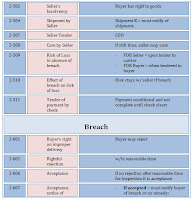Finding a job after law school is on the minds of most third year students (3L’s). Before landing that job – or even applying – the Bar Exam is a necessary hurdle…well, unless you’re a Wisconsinite. Wisconsin aside (some Wisconsin law graduates are not required to take the Bar if they graduate from certain schools) most recent graduates are juggling their Bar review course, job prospects, and a personal life, if it even still exists.
Should you look for a job before you pass the Bar Exam?
Yes! You should be applying to jobs before the exam. Even if you haven’t applied yet, set aside 20 minutes a day to make a list of employers and what they require. Some jobs require applicants submit a resume; others require a résumé, cover letter, references, writing samples, etc. You get the point…
You need to focus on your interviewing skills. Don’t ignore this part of the overall picture.
First impressions are important. "In an age dominated by social media where personal photographs are ubiquitous, it becomes important to understand the ways personality is communicated via our appearance,"
said one researcher working on a study at the University of Texas. And this
personality factor
is huge. It will affect how you fit in with the firm, how you get along with, say, the team of paralegals who are essential to the firm.
Research the firm or organization you are applying to, and predict if you will be liked. I suggest taking a look at the firm's "staff" page if it is available, and read the bio section. Most firms these days have a website, and if they don't, you might even be able to use this sort of "constructive criticism" to gain a few brownie points with the interviewing attorney.
If you need help with your interview skills:
Where do you find jobs you may be interested in applying for?
The #1 resource is your school’s career services department. By now, you should have a way of logging in and accessing your school’s career database. If you are not going to stick around the geographical area where you went to school, send an email to the career services department at the schools where you hope to find your first job.
Here are some ideas to bring in some cash while you find your dream job:
- Search Craigslist or other similar directories for tutoring or teaching jobs.
- If you have graduated law school, then you must have passed Legal Research and Writing. Consider writing articles for sites like Examiner.com.. This program can get you started; it has helped countless people make money writing online. As a graduate degree holder, you can probably land a gig that can generate money, depending on how many people end up reading your articles. Tip: write about a subject you are passionate about.
- Use your talents or hobbies to make money. Do you speak more than one language? Consider becoming a translator in some capacity. There really are so many ways to put your language skills to use as a part-time translator. Get started here as a translator.
More Tips:
Get on
LinkedIn if you aren’t already…connections, connections, connections. It really is quite valuable to have a list of all of your network contacts. You never know who may be able to help you, or who you may be able to help.
Spread your seed. Maybe you will need to apply to 50 jobs before you find one for you. By applying to many jobs, you’ll only have more doors that could possibly open. An added benefit is that when you do get a job offer, you will have a bit of leverage room to negotiate if need be if you have two or three offers.
Don’t screw with your credit, and be careful with social media. These days, pictures that are uploaded to social media sites are probably going to be around forever. Just ask a few of our nation’s finest politicians.















